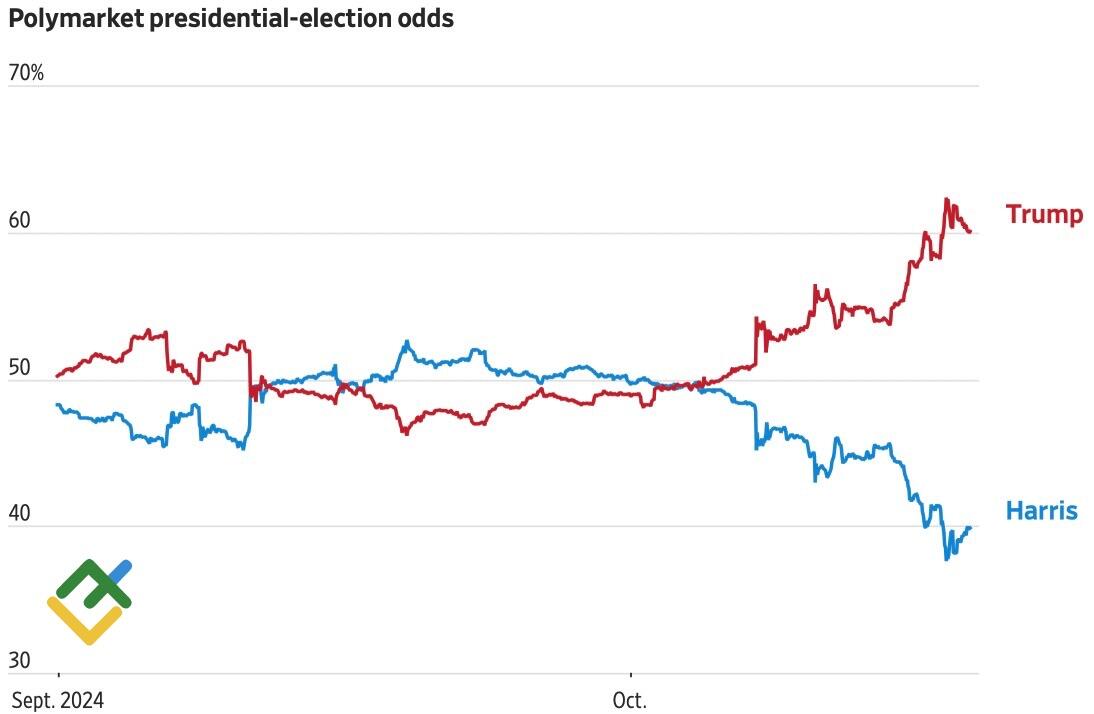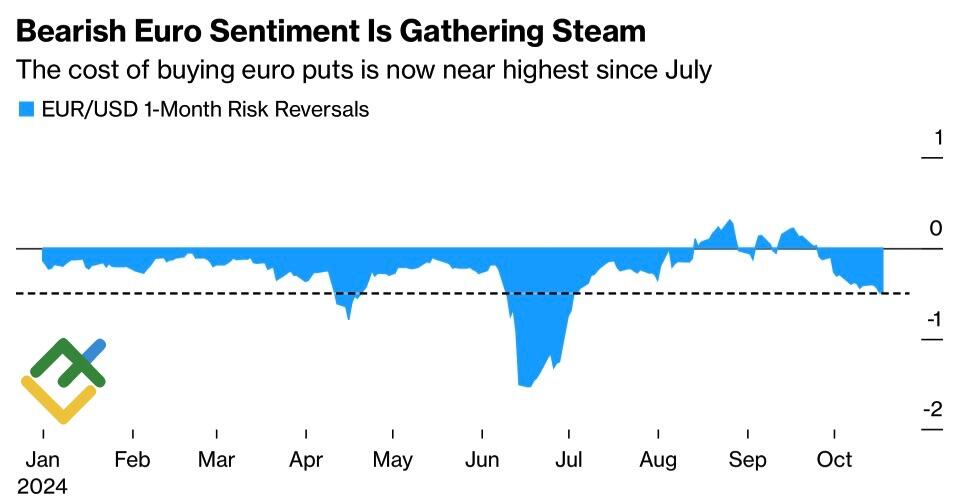
A Frexit? A Trump trade? Fears of the eurozone’s sliding into deflation? Which of these drivers may cause the EURUSD to collapse? There are so many negative factors that the euro will unlikely pull back. Let’s discuss it and make a trading plan.
The article covers the following subjects:
Highlights and key points
- 2016 patterns revive dollar-positive Trump trade.
- France’s credit downgrade weighs on the euro.
- ECB worries about the eurozone sliding into deflation.
- EURUSD’s failure to hold on to 1.0865 is a reason to sell.
Weekly fundamental forecast for euro
If the ECB hadn’t drowned EURUSD by picking up the rate cuts pace, the Trump trade would have. Bank of America notes that investors remember 2016, when Donald Trump first came to power, and are buying bank stocks, small-cap stocks, and the U.S. dollar. Since early October, the Goldman Sachs basket of assets that would benefit from a Republican victory has significantly outpaced the “Democrat basket.” And that’s no surprise as Polymarket contracts on Trump’s victory are priced at 60 cents per dollar compared to 40 cents per dollar for Kamala Harris.
Bets on U.S. presidential victory
Source: Wall Street Journal.
Pictet Wealth Management says EURUSD could fall to parity if Donald Trump returns to the White House and turns on his tariffs policy at full speed. Deutsche Bank shares this view, while JP Morgan and ING also anticipate the euro could fall to 1:1 with the U.S. dollar by the end of the year.
UBS notes that the risks of a surge in import tariffs are very high. Moreover, this will not only affect developing countries but also hit the entire global economy hard, which is bad news for the euro as a pro-cyclical currency and terrible news for the export-oriented eurozone. Add to this the risk of Chinese imports to Europe due to U.S. high tariffs, and the effect could be even greater for the region already suffering from low domestic demand.
Unsurprisingly, investors are dumping the euro. Speculators are showing the most significant pessimism in two months, and the risks of a reversal in the EURUSD pair have fallen to the very bottom since the beginning of July.
Euro against USD risk reversal trends
Source: Bloomberg.
EURUSD‘s dive is also fueled by rumors of aggressive monetary easing by the ECB and a downgrade of France’s credit rating by Scope Ratings to the same level as Belgium and the Czech Republic. Prime Minister Michel Barnier’s budget proposal has angered the left, who want to see a more significant increase in taxes on the rich and corporations.
Political squabbles continue, adding further pressure on the euro. As the saying goes, misfortunes never come alone. However, the ECB’s concerns about the eurozone’s return to deflation remain more significant. The risks of prices slowing below the target are now roughly equal to those of CPI anchoring above the target, Bank of France Governor François Villeroy de Galhau says.
Weekly trading plan for EURUSD
The rise in EURUSD could result from the “sell the rumor, buy the fact” principle regarding the ECB rate cuts. The sentiment for the main currency pair remains bearish, so the euro’s failure to hold onto $1.0865 or a rebound from the resistance at $1.0905 will be signals for selling.
Price chart of EURUSD in real time mode
The content of this article reflects the author’s opinion and does not necessarily reflect the official position of LiteFinance. The material published on this page is provided for informational purposes only and should not be considered as the provision of investment advice for the purposes of Directive 2004/39/EC.
{{value}} ( {{count}} {{title}} )
This post is originally published on LITEFINANCE.







